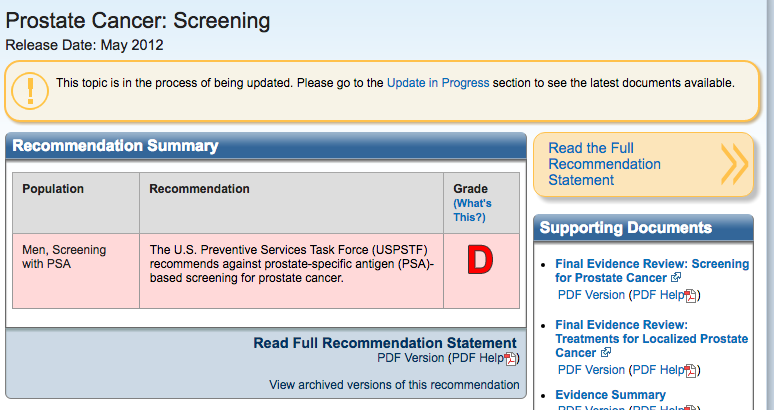Ben Stiller Reveals How He Found out He Had Cancer Even Though He Had No Symptoms

By:
Actor Ben Stiller just revealed that taking a blood test two years ago may have saved his life, as it led to a cancer diagnosis for which he displayed zero symptoms.
The 50-year-old actor wrote in a Medium post on Tuesday that he discovered he had prostate cancer in 2014 after an internist suggested he take a prostate specific antigen (PSA) test, a blood test that screens for prostate cancer. The National Cancer Institute states that many doctors used to recommend that men get the screening at age 50, but that PSA tests have become controversial in recent years because of potential risks and misreads that may come with the screening process.
In 2012, Virginia Moyer, then chairwoman of the U.S. Preventive Services Task Force (USPTF), told USA Today the screening can "cause harm." At the time, USA Today also cited an Annals of Internal Medicine review, which reported that 13 percent of the men who undergo the test will get a false alarm, prompting follow-up tests that can be both stressful and painful.
As a result, the USPTF currently recommends against the PSA test. However, per it's website, that recommendation is under review.
 USPTF website - uspreventiveservicestaskforce.org
USPTF website - uspreventiveservicestaskforce.org
Stiller acknowledges the criticisms of the test, but said he still considered it worthwhile for men who don't show symptoms of the disease, or aren't considered to be at high risk for it by the medical community.
Stiller had zero prostate cancer symptoms, he does not have a family history of prostate cancer, and he is not of an ethnicity with a greater risk of developing the condition:
"I am not offering a scientific point of view here, just a personal one, based on my experience. The bottom line for me: I was lucky enough to have a doctor who gave me what they call a 'baseline' PSA test when I was about 46. I have no history of prostate cancer in my family and I am not in the high-risk group, being neither — to the best of my knowledge — of African or Scandinavian ancestry. I had no symptoms. What I had — and I’m healthy today because of it — was a thoughtful internist who felt like I was around the age to start checking my PSA level, and discussed it with me."
 Flickr/Eva Rinaldi - flickr.com
Flickr/Eva Rinaldi - flickr.com
Stiller added that it he might not have survived his cancer had his internist waited until he turned 50, as commonly recommended, to give him the test:
"If he had waited, as the American Cancer Society recommends, until I was 50, I would not have known I had a growing tumor until two years after I got treated. If he had followed the US Preventive Services Task Force guidelines, I would have never gotten tested at all, and not have known I had cancer until it was way too late to treat successfully."
According to the Centers for Disease Control and Prevention (CDC), "prostate cancer is the most common non-skin cancer among American men." The CDC states that prostate cancers grow slowly, and that most men suffering from it are above the age of 65.
"A prostate specific antigen (PSA) test may find prostate cancer at an earlier stage than if you don’t get screened, but most medical groups don’t recommend screening with the PSA test," the CDC states.
 National Cancer Institute - cancer.gov
National Cancer Institute - cancer.gov
The Mayo Clinic writes that the PSA can help detect prostate cancer early, but that the test comes with limitations and reading difficulties for doctors. According to the Mayo Clinic, cancer is not the only source of PSA level changes and fluctuations, and PSA levels naturally increase overtime, so determining that someone has cancer based on PSA levels can lead to inaccuracies. Research has shown that up between 23 to 42 percent of men who were diagnosed with prostate cancer through the PSA test have symptom-free tumors that are "not likely to cause poor health or to present a risk to the man's life," the Mayo Clinic continues.
"There is a lot of conflicting advice about PSA testing," another Mayo Clinic link states. "To decide whether to have a PSA test, discuss the issue with your doctor, considering your risk factors and weighing your personal preferences."
Read Stiller's full post here.
